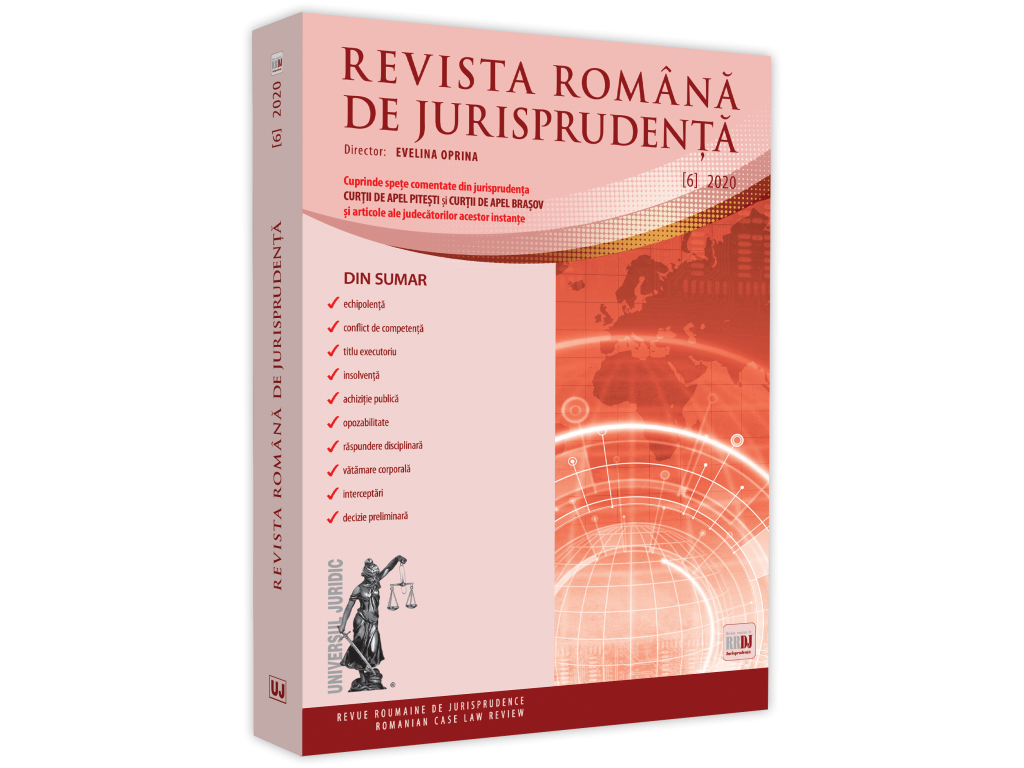73. Accident de muncă. Vătămare corporală din culpă
73. Occupational accident. Unintentional bodily injury
Author(s): Vlad Mihai NeagoeSubject(s): Law, Constitution, Jurisprudence, Civil Law
Published by: Universul Juridic
Keywords: occupational accident; Criminal Code; occupational safety;
Summary/Abstract: Failure to conclude the individual employment agreement in writing cannot represent itself the material element of the offence of unintentional bodily injury, provided by Article 196 para. (2) and (3) of the Criminal Code or the basis for the employer’s acquittal for the offence of failure to take legal occupational safety and health measures provided for by Article 349 of the Criminal Code and this omission cannot be either imposed on the worker, not even partially, reducing proportionally the employer’s guilt. Moreover, when the immediate danger of occurrence of an occupational accident is actually materialized over the worker, the specific offences against the labor protection are acknowledged in formal concurrence of offences with the offences committed against the person, the essence of which is precisely the identity of their material element, according to Article 38 para. (2) of the Criminal Code. The obligation to take occupational safety measures the fulfilment of which may represent a material element of the specific offence in case of occurrence of the immediate danger of occurrence of the occupational accident cannot be confused with the obligation to conclude the individual employment agreement in writing, as a legal basis for the development of the employment relationships, within which the injuring event occurred. What interests from the incriminating point of view, is only the assurance of the adequate conditions for the conduct of the work process, so that the risks for the occupational safety and health by removed or mitigated, the legal framework for taking the occupational protection measures being established only as a legal prerequisite for the efficiency of these specific measures. Neither the responsibility of the worker can be upheld in terms of the obligation to conclude the individual employment agreement, under the circumstances in which, according to Article 16 para. (1) of the Labor Code, as interpreted by Decision no. 37/2016 of the High Court of Cassation and Justice – Panel regarding the settlement of certain legal matters, and considering the Decision no. 1042/2007 delivered in the matter by the Constitutional Court, the individual employment agreement needs to be concluded in writing for its validity, without the failure to conclude it preventing its proving according to law, this being a requirement which is imperatively imposed on the employer, precisely through the agency of the authority which it has on the employee and of the undertaken responsibility of the entire company, the purpose of law making being aimed at the worker’s protection, who is not in the same legal situation as the employer, as they take part of two distinct categories, each of them having specific rights and obligations.
Journal: Revista Română de Jurisprudenţă
- Issue Year: 2020
- Issue No: 06
- Page Range: 397-404
- Page Count: 8
- Language: Romanian
- Content File-PDF

